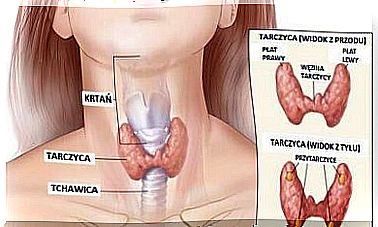Children Don’t Want To Eat? Find Out What To Do Then

A common problem discussed among parents is when their children do not want to eat. Overall, this is nothing to worry about as this is usually the stage almost all children go through. And almost all of them come out of it. But if your pediatrician notices a more serious problem, you may need to help your baby gain weight.
During infancy, the growth rate of a child’s weight is very fast, so during this period, children often eat regular portions and without fussing.
But between the ages of 2 and 5, there is a typical childhood lack of appetite. It can even go on up to the age of 6 or 7. When it’s regular mealtime, babies won’t eat. The toddler discards food and refuses to eat at the table. Parents try to coerce their children by offering them various rewards or by threatening to punish them.
That’s when the time of the meal turns into a battlefield.
Teach children to eat
Starting a complementary feeding is like awakening a sense of taste to your baby’s palate. From the stage where he ate only milk, he enters an unknown world of new tastes, which are gradually introduced into his diet. Therefore, during this period, the child is eager to try new dishes and are equally eager to eat. They even eat it with apparent pleasure. But as he grows, his personal preferences come to the fore.

After the first year of life, there are several factors that make children less interested in eating and often refusing to eat. Their growth rate slows down and hunger is only satisfied by supplementary feeding. In addition, his awakening interest in the world around him pushes food into the background.
It seems that as they grow up, children only want a select few foods and, in addition, in small amounts. Parents are starting to worry. Eating becomes a frequent topic of consultation with a pediatrician or on internet forums. Concerned parents start looking for help because “their children don’t want to eat.”
Parents worry about getting their children the right nutrients. As a consequence, some of them force their children to eat more food than they really need.
When children refuse to eat – refusal to eat
There may also be organic causes behind the decrease in appetite. A chronic illness, flu-related malaise, or acute infection may cause your child to refuse to eat. Usually, however, this is a short period. After the disease is overcome, the appetite usually returns to normal.
The problem begins when the child feels hungry, but tries to satisfy his hunger only with food that pleases his palate. Of course, parents have a key role to play in resolving this situation.

Your child will refuse to eat regular meals because they know that when they feel hungry, there will always be someone to give them what they want. If this conflict is prolonged over time, it can have a negative effect on the baby’s healthy eating habits. In such a situation, there may even be a medical indication that he needs to help him gain weight.
How to help your baby gain weight
Children learn to eat the amount of food that makes them feel full. If they are healthy and playful babies who are growing at the right pace, then we shouldn’t be so concerned about their position in the growth charts.
Parents should only take care of creating a pleasant atmosphere during the meal and provide healthy and nutritious food for their child. However, if a child is losing a lot of weight, it may mean that we should help him gain a few pounds.

Here are some basic recommendations that can support their nutritional process and encourage children to eat:
- Introduce new foods in a gradual and attractive manner. If your child repeatedly refuses to eat a particular product, try offering another that has similar nutrients.
- Set a good example. Even if a child stubbornly rejects a variety of products, if he sees his parents eat them with appetite, sooner or later children’s curiosity will win. The example of their parents will encourage them to taste what mom and dad eat. Therefore, it is important for the child to eat at the table with the whole family. Also, do not prepare a separate, personalized menu for it.
- Use his likes and dislikes to introduce new foods. Creativity has no limits when it comes to cooking and offering children new dishes so that they can learn to eat healthy. For children, the way of serving, or even the presentation of, food is especially important, so get your creativity started.
- If a child consistently refuses to try new products, be patient and persistent. Avoid showing anger and just insist consistently. If the child’s refusal does not lead to negative consequences such as nausea or vomiting afterwards, he will gradually accept the new food.
- After an infection, it is normal for a child to lose weight, but usually has a tendency to regain weight quickly. Take advantage of your restored appetite to help him gain weight.
A final reflection on children who don’t want to eat
Remember that it’s not just about gaining weight. Excessive consumption of sugary foods, chemically processed and rich in trans fats, is not a healthy formula for weight gain . Childhood obesity is a serious problem that is best avoided.
Lunch time must be an enjoyable time for the whole family. This positive impression and a good atmosphere improve your appetite. It works for everyone, no matter how old we are.
When a child associates eating with something pleasant, the problems with lack of appetite will be overcome for sure. However, if the problem of food reluctance is too long, your pediatrician may consider using vitamins or dietary supplements to help him gain weight.









